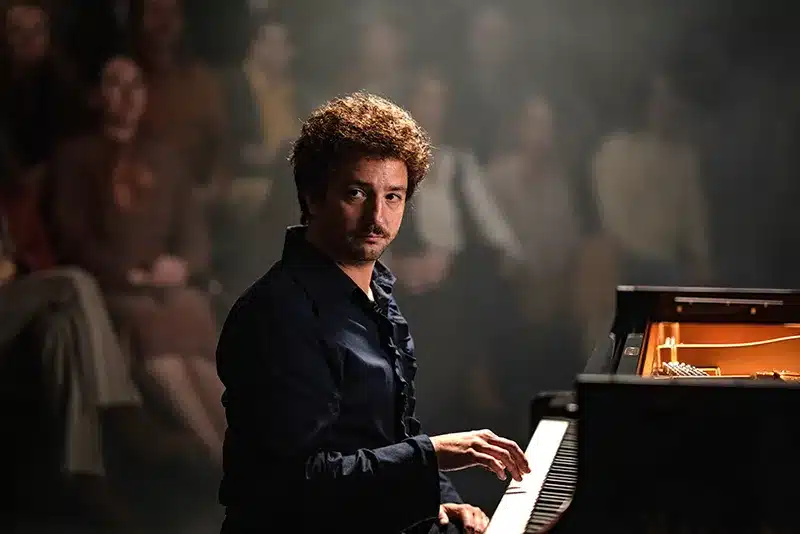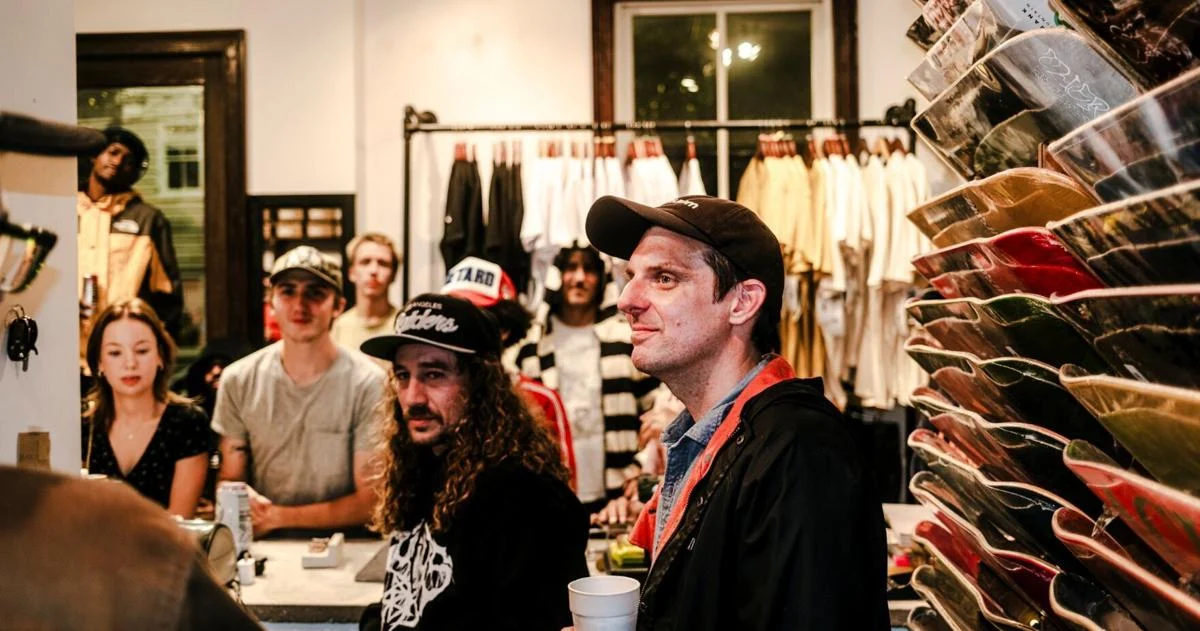Copyright popmatters

Biopics of famous musicians are among the film business’s surefire ways to cashbox gold and critical acclaim. From The Doors, Elvis, and The Buddy Holly Story to The Coal Miner’s Daughter and the just-released Bruce Springsteen film, Deliver Me from Nowhere, it’s the stars and their well-worn legends that are center stage. However, with KÖLN 75, director Ido Fluk has flipped the script. His film tells the story of a music-obsessed German teenager, Vera Brandes, who overcame a boatload of obstacles to produce the most legendary concert by pianist Keith Jarrett. This monumental performance yielded a masterpiece album that remains the all-time best-selling jazz album by a soloist. After witnessing a concert by saxophonist Ronnie Scott, 15-year-old Brandes decides she will turn her love of music into a vocation by booking a tour for him, even though she has no idea how to do so. In short order and with a lot of charm and hustle, she becomes one of the leading jazz concert promoters in Germany. In 1974, at 16, she produced the New Jazz in Cologne series, booking top acts such as Oregon and Gary Burton. After witnessing a solo performance by Jarrett, she becomes fixated on producing a concert with the virtuoso American as a part of her jazz series. She will need to raise $50,000 to rent the Cologne Opera House and ensure that the finicky Jarrett has his instrument of choice for the gig—a Bösendorfer Grand Imperial, a 97-key, ten-foot-long music-making monster. Brandes’ problems begin with her family, especially her unapproving dentist father. Vera is carrying on her life as a concert promoter unbeknownst to them, until a newspaper story with a very provocative photo outs her as “the teenage jazz bunny”. That leads to her being expelled from school. When she asks her dad to lend her the money to rent the opera house for Jarrett’s concert, he violently slaps her. In the first scene of the movie, a flash-forward to Brandes’ 50th birthday party, her still-disdainful father toasts her, calling her “my greatest disappointment”. Mala Emde’s performance as Brandes is a pure joy. She perfectly captures Brandes’ passion for music – the youthful enthusiasm with which she tackles the many obstacles and the hurt that comes with her father’s constant disdain for what she works so hard to become. There’s also a great scene of Vera and her hipster friends huffing her dentist dad’s nitrous oxide as they spin albums by Krautrock faves Can, Floh de Cologne, and NEU! It’s Emde’s multifaceted and emotional performance that gives this flight to the tuneful saga of feminist power. To portray Keith Jarrett, Fluk turned to one of my favorite actors, John Magaro. Magaro is one of those “oh that guy!” actors—a man who’s not quite a household name but who was the engine behind some of my favorite films and television shows, from David Chase’s criminally underrated Not Fade Away to Orange Is the New Black. Magaro brings great intensity and humanity to Jarrett, who will play this monumental concert after not sleeping for two days, after an eight-hour drive through a frigid night, with a bad back from a slipped disc, and on a “broken” rehearsal piano, and not the promised Grand Imperial. When Jarrett arrives at the concert venue and his preferred piano is nowhere to be found, he says he will not perform. The scene where Brandes challenges Jarrett to do the concert by calling him “scared” and “spoiled” is one of the best. Kudos should also go to Michael Chernus, who portrays jazz journalist Michael Watts, a fictional character who serves as a sort of narrator. Best known for his recent role in Severance, the actor has a few moments in which he speaks directly to the camera, offering a condensed history of Jarrett and jazz itself—from big bands and bebop to free jazz and Jarrett’s unique, spontaneous improvisational approach. He is with Jarrett and his benefactor, ECM Records founder Manfred Eicher (Alexander Scheer), during their lonely drive through the night to Cologne. Jarrett will reluctantly reveal his motivations and fears to the writer, then end each revelation with “You can’t write about that!” Brandes’ mother will ultimately give Vera a check to rent the hall and make history happen. The piano technicians Vera hires will miraculously get the broken pedal and the stuck keys working well enough for Jarrett to give it a go. Interestingly, as Magaro/Jarrett takes the stage and plays, we hear not the actual performance, but Nina Simone‘s majestic take on the Bee Gees “To Love Somebody”. The film has a satisfying end. We are back at Vera’s 50th birthday party, where she escorts her departing dad to the door and tells him, “You were a terrible father!” In the end credits, we learn that Brandes would continue to challenge herself and conventions and thrive. She became a leading European jazz concert promoter, founded several record labels, and produced over 350 albums by artists such as Hermeto Pascoal and the Lounge Lizards. After two strokes in 2018, Keith Jarrett became partially paralyzed and lost the ability to perform. However, thanks to Manfred Eicher and ECM, there are well over 80 albums of his to enjoy, including his most legendary profiled so masterfully in Ido Fluk’s latest and most heartfelt film.



